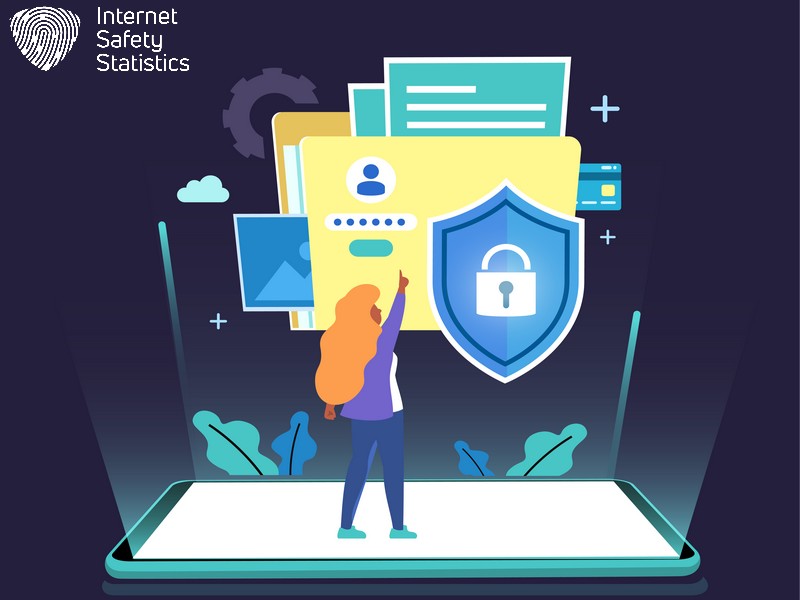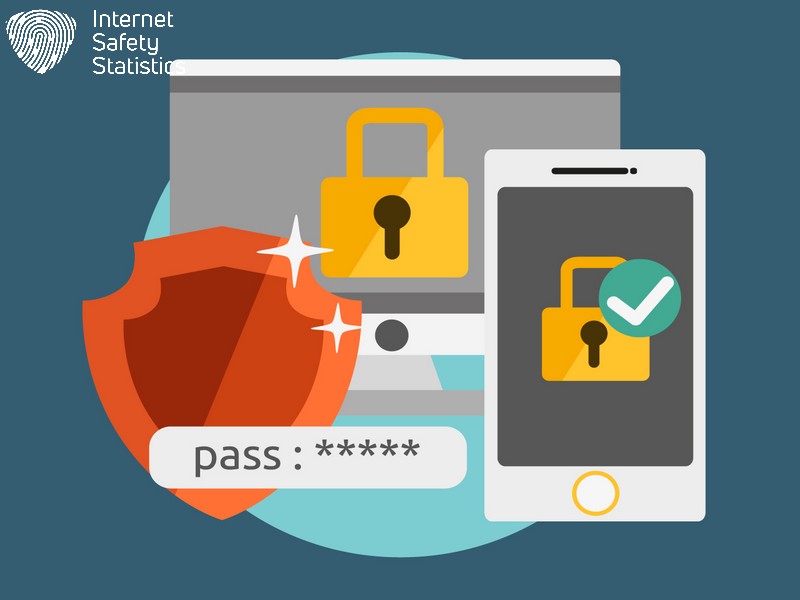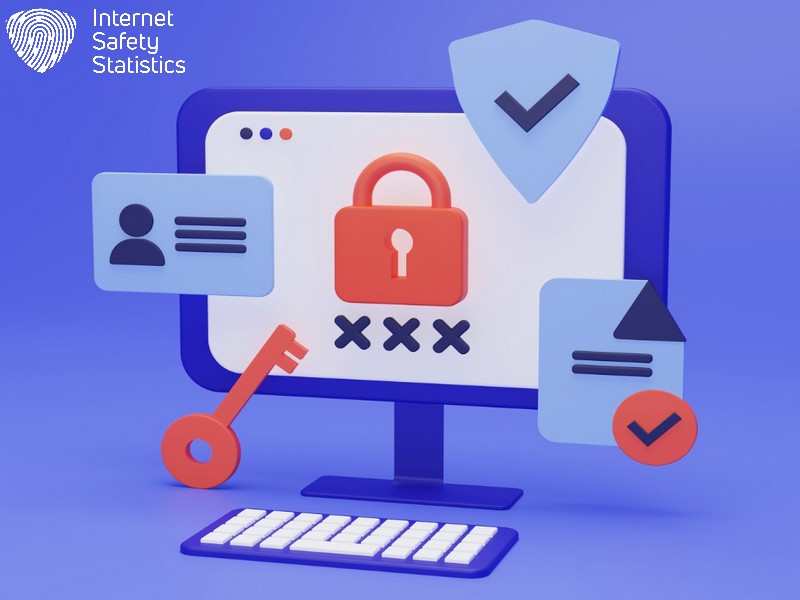
The internet thrives on information sharing, yet concerns about online privacy remain growing. This phenomenon, often called the “privacy paradox,” highlights the disconnect between our anxieties about online data and our online behaviour. We frequently share personal details on social media while expressing unease about who might access this information.
Understanding the psychology behind this paradox is crucial for navigating the complexities of online privacy. Several factors contribute to this disconnect. Firstly, the social nature of online platforms fuels a desire for connection and self-expression. Sharing personal information can foster a sense of belonging and validation within online communities.
Secondly, the concept of online privacy itself is relatively new, and social norms regarding online data sharing are still evolving. Furthermore, feelings of anonymity and perceived invisibility within the vast online space can lead to reduced risk when sharing personal information.
Finally, the benefits of online services often come at the cost of data disclosure. Many free platforms rely on user data to function and generate revenue. While users may intellectually understand this trade-off, the convenience and perceived value of these services can overshadow privacy concerns.
This exploration delves deeper into the psychology of online privacy. We’ll examine the factors influencing our online behaviour and the reasons behind the privacy paradox. By understanding these psychological motivations, you can make more informed choices about your online data and bridge the gap between your privacy concerns and online actions. The guide will equip you with strategies to manage your online presence more effectively, allowing you to share what you feel comfortable with while safeguarding sensitive information.
Stay safe and savvy in the digital world!
Defining Privacy
Privacy can be understood from a historical and psychological perspective, encompassing confidentiality, personal boundaries, and information control. Understanding these perspectives is crucial to grasping the complexity of user behaviour regarding online privacy.
Historical Perspective
Understanding the historical context of online privacy helps us grasp why it’s such a critical issue today. For most of history, protecting personal information wasn’t as complex as in the digital age. As societies evolved, so did the concept of confidentiality and the need to shield our details from public view. However, this aspect has often been overlooked within psychological studies until recently.
The rise of social media and internet use has dramatically shifted how we think about and protect our private data. Previously, privacy concerns were limited to tangible threats like burglary or eavesdropping. With vast amounts of data being shared across online communities and stored in cloud databases, maintaining digital privacy poses new challenges unimaginable in earlier eras. Researchers now diligently explore how users disclose information online—an essential step for understanding modern user behaviour towards their privacy protection.
The Psychology of Online Privacy
Privacy is a psychological concept that has been overlooked throughout history. Understanding user behaviour in managing online privacy requires considering psychological and economic factors and individual attitudes and behaviours.
Research on online behaviour suggests discrepancies between user attitudes and actions, revealing a privacy paradox. This paradox highlights the challenge of addressing users’ concerns about online privacy while understanding their real-life decisions and actions. Psychological perspectives on online privacy focus on studying users’ motivations for protecting their data, influenced by cognitive processes and emotional responses to information exposure.
Furthermore, examining the impact of social networks on privacy issues reveals how third-party involvement shapes user behaviours in managing online security. As we explore the complexity of user behaviour regarding online privacy, it becomes essential to understand how best to address these challenges in the modern era of internet use.
Factors Influencing Online Privacy Behaviour

One major factor in online privacy behaviour is the calculation of risks and benefits, as individuals weigh the potential threats to their personal information against the convenience and benefits of online services. Another important consideration is the rationality or irrationality involved in decision-making regarding privacy, which cognitive biases and emotional responses can influence.
Risk-Benefit Calculation
Consumers weigh the potential risks against the benefits when deciding whether to disclose personal information online. A study on internet users indicated that individuals consider the value of the benefits they might receive in exchange for sharing their data, such as access to personalised services or relevant recommendations. Simultaneously, they evaluate potential risks like identity theft, fraud, or privacy breaches. Factors influencing this calculation include psychological aspects and economic considerations.
To manage online privacy effectively, users must assess these factors continually and make informed decisions about sharing their personal information. This process involves understanding the perceived benefits and recognising and mitigating potential risks of disclosing sensitive data online.
Rationality vs. Irrationality in Decision-Making
Consumers weigh the pros and cons of privacy protection before making decisions online. In this process, rationality and irrationality often come into play. Economic and psychological factors drive users to prioritise safeguarding their data or overlook potential risks. Understanding these influences is crucial in creating effective strategies for promoting online privacy awareness among individuals.
Consumers’ perceptions are not always guided by logical reasoning when protecting their personal information online. Psychological and economic forces shape decision-making processes, impacting how individuals evaluate risks related to their online behaviour.
The Privacy Paradox
Despite expressing concerns about online privacy, users often engage in behaviours that contradict these concerns. This discrepancy, known as the privacy paradox, highlights the complex nature of user behaviour and decision-making in the digital environment.
Discrepancy between Expressed Concerns and Behaviour
Research on online behaviour has revealed a privacy paradox, highlighting the gap between users’ concerns about online privacy and their actual behaviour. Despite worrying about their online privacy, many users engage in behaviours that compromise it.
This phenomenon is driven by various psychological and economic factors influencing individuals’ ability to protect their privacy effectively. Understanding this discrepancy is crucial in devising effective strategies to bridge the gap between user attitudes and their actual behaviour.
Psychological perspectives play a significant role in understanding the discrepancy between expressed concerns and behaviour regarding online privacy. Users may express privacy concerns but might not always act upon those concerns due to complex internal cognitive processes influenced by numerous factors such as trust, convenience, or lack of awareness of potential risks.
Context-Dependence
The way people approach online privacy can heavily depend on their specific situation. For example, individuals might be more open to sharing personal information on social media with friends and family than strangers or in a professional context.
At the same time, users tend to be more cautious about their privacy and security when conducting financial transactions online. Therefore, how users assess and handle their online privacy is influenced by their particular circumstances at any given moment. This context dependence also extends to the platforms and devices people use. Individuals’ trust in websites, apps, or digital services can significantly impact their willingness to share personal data.
Solutions to the Privacy Paradox

Educating users about privacy risks and providing transparent information on data usage can help bridge the gap between expressed concerns and actual online behaviour. Context-specific strategies tailored to different online activities can also play a crucial role in addressing the privacy paradox.
Educating Users
Providing clear and easily understandable information is crucial for educating users about online privacy. Users should be informed about the potential risks of sharing personal data online. It’s essential to explain how their behaviour can affect their privacy and security, emphasising the importance of making informed decisions when using the internet. Moreover, educating users about online privacy should include practical steps to protect themselves, such as using strong passwords, enabling two-factor authentication, and being cautious about what information they share on social media platforms.
Furthermore, user education should emphasise the relevance of cybersecurity practices in everyday life. This includes educating parents on how to teach their children about online safety and encouraging office workers to participate in regular training sessions on data protection best practices.
Providing Transparency
Companies and websites must be transparent about collecting, using, and sharing data when sharing personal information online. This transparency helps users make informed decisions about their privacy and builds trust. By clearly communicating their privacy policies and practices, organisations can empower users to understand the risks and benefits of sharing their information. Furthermore, providing transparency can help bridge the privacy paradox by aligning user attitudes with their behaviour. This proactive approach enhances user protection and promotes a more ethical online environment.
Online platforms prioritising transparency in handling user data contribute to educating individuals about safeguarding their information. When companies openly communicate about their data practices, they foster a culture of accountability and respect for users’ privacy concerns.
Context-Specific Strategies
Users can adopt context-specific strategies to protect their online privacy. Understanding that different online activities carry varying levels of risk is essential. For example, using strong and unique passwords for financial transactions versus casual browsing helps mitigate potential threats.
Implementing multi-factor authentication for sensitive accounts adds an extra layer of security. Being mindful of the information shared on social media platforms and adjusting privacy settings according to the desired level of visibility is crucial in safeguarding personal data.
Moreover, being cautious about clicking on suspicious links or responding to unsolicited requests reduces exposure to phishing attacks. Regularly updating software and antivirus programs helps fortify defences against cyber threats. Users can proactively enhance their digital safety by incorporating these tailored approaches into their online practices, ensuring a more secure online experience.
The Special Case of Mobile Computing

Mobile computing has significantly impacted online privacy, as users are often unaware of the risks associated with using mobile devices to access the internet. However, some specific strategies and solutions can help address mobile privacy concerns.
Impact on Online Privacy
Individual behaviours and the involvement of third parties on online social networks significantly impact online privacy. Psychological and economic factors play a key role in influencing users’ willingness and ability to protect their privacy while interacting online.
Research has shown that there are often discrepancies between user attitudes towards privacy and their actual behaviour, revealing the complexity of managing personal information in the digital age. Furthermore, the neglect of privacy psychology is increasingly consequential in an era dominated by social media, where maintaining control over personal data can be challenging.
Consumers’ trust and ethical considerations also shape online privacy dynamics, making it essential for internet users to understand the implications of their actions when sharing information or engaging with online platforms. Moreover, as managing and protecting online privacy becomes integral to everyday life, individuals must be aware of how their decisions may impact their digital security.
Solutions for Mobile Privacy Concerns
When searching for practical solutions to mobile privacy concerns, which overlap with general online privacy concerns, we can compile a comprehensive list of plausible solutions. In the following segments, we suggest two types of solutions: general solutions that overlap with online privacy and mobile-specific solutions.
General Overlap with Online Privacy
After learning the possible dangers mobile computing poses to online privacy, it’s vital to consider reasonable solutions for any incident involving the processing and protection of online data and privacy. The following solutions apply to your data and privacy regardless of the device you use to access online data.
- App Permissions: Like on websites, be mindful of what permissions you grant to mobile apps. Location, camera, microphone – only allow access if it directly relates to the app’s function. Review and adjust permissions regularly in your phone’s settings.
- Data Encryption: Most modern phones offer data encryption by default, which scrambles your information if your phone is lost or stolen. Double-check your phone’s security settings to ensure encryption is enabled.
- Beware of Phishing: Like on computers, be cautious of emails and text messages with suspicious links or attachments. Don’t click on them, and be wary of unsolicited messages urging immediate action.
Mobile-Specific Solutions
Mobile phones have greatly facilitated our lives, with new technologies dominating the scene faster daily. However, these technologies are two-sided and carry multiple threats to our privacy. Examples include location tracking options, which help in providing customised recommendations and possible navigation routes but can also send data to potentially malicious applications.
- Location Tracking: Many apps track your location even when it is not actively used. Review each app’s location settings and disable location access for apps that don’t require it.
- Wi-Fi Auto-Connect: Do not automatically connect to unknown Wi-Fi networks. Malicious actors can set up fake Wi-Fi hotspots to steal your data.
- App Review: Before installing an app, read reviews to see if other users mention any privacy concerns.
- Limited App Installs: Consider installing apps only from official app stores (Google Play Store, Apple App Store) to reduce the risk of malware.
- Mobile Security Software: There are reputable mobile security apps that can help protect against malware and data breaches.
By following these steps, you can significantly improve your mobile privacy and take back control of your data.
Understanding the psychological factors influencing online privacy behaviour is crucial in today’s digital age. Educating internet users about privacy risks and providing transparent information can help bridge the gap between expressed concerns and actual behaviour. By recognising the nuances of user decision-making, we can develop context-specific strategies to enhance online privacy protection for all individuals. Overall, comprehending the psychology of online privacy empowers us to create a safer and more informed cyberspace environment.
FAQs
1. What is the psychology behind online privacy?
The psychology of online privacy explores how protection motivation theory and behavioural psychology influence user behaviour on the internet, focusing on why people choose to protect or risk their privacy.
2. Can you explain what protection motivation theory is?
The protection motivation theory suggests that individuals assess potential threats and take actions based on their understanding of risks and rewards. This can help us understand decisions made regarding internet privacy.
3. What are some examples of the privacy paradox in action?
Privacy paradox examples include situations where users acknowledge the importance of online privacy but engage in behaviours that compromise it, such as sharing personal information on social media platforms without adequate safeguards.
4. How does understanding user behaviour help with internet privacy?
Understanding user behaviour helps developers design better safeguards for Internet privacy by considering how real people react to perceived threats and protective measures while navigating online spaces.
